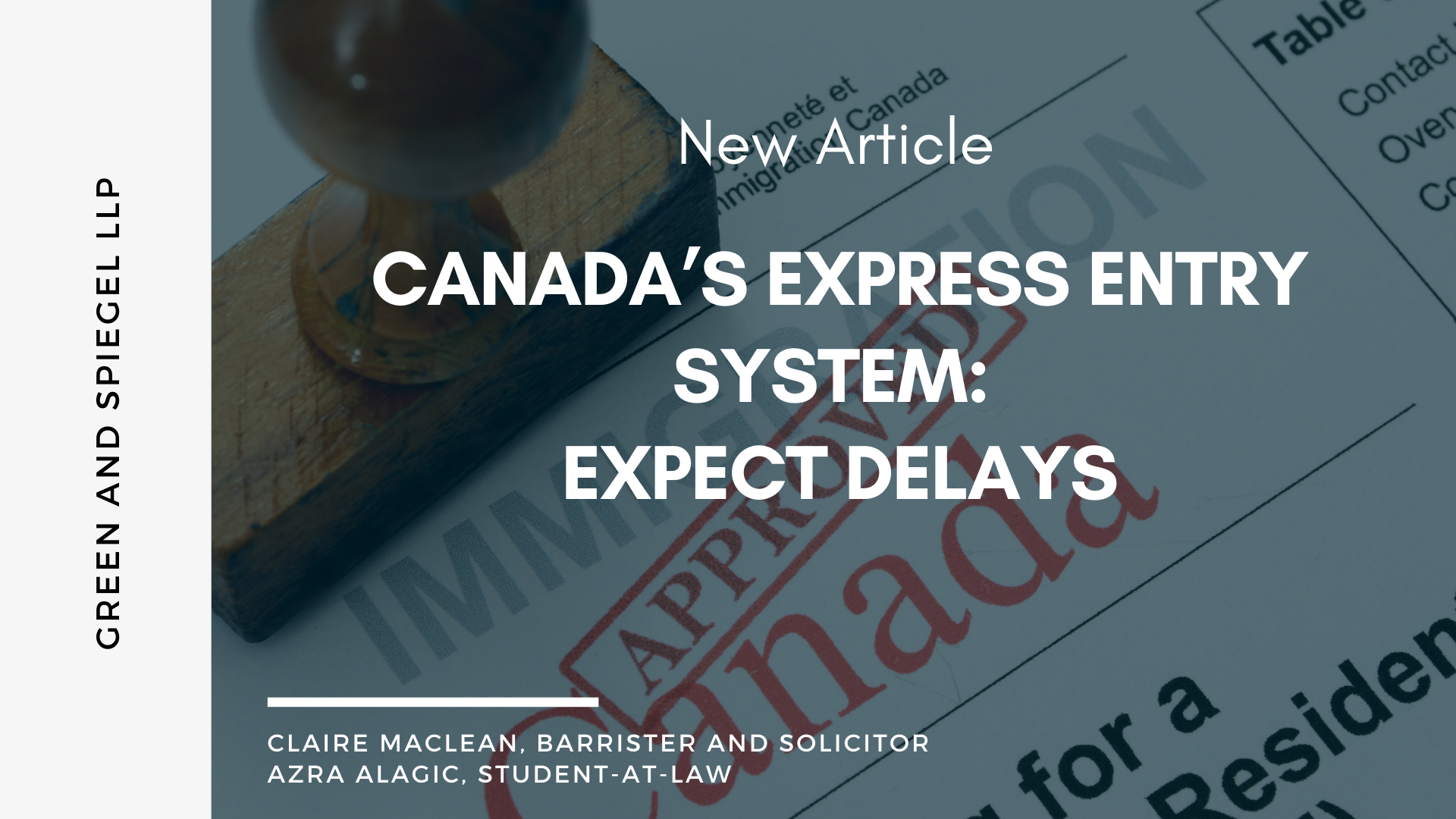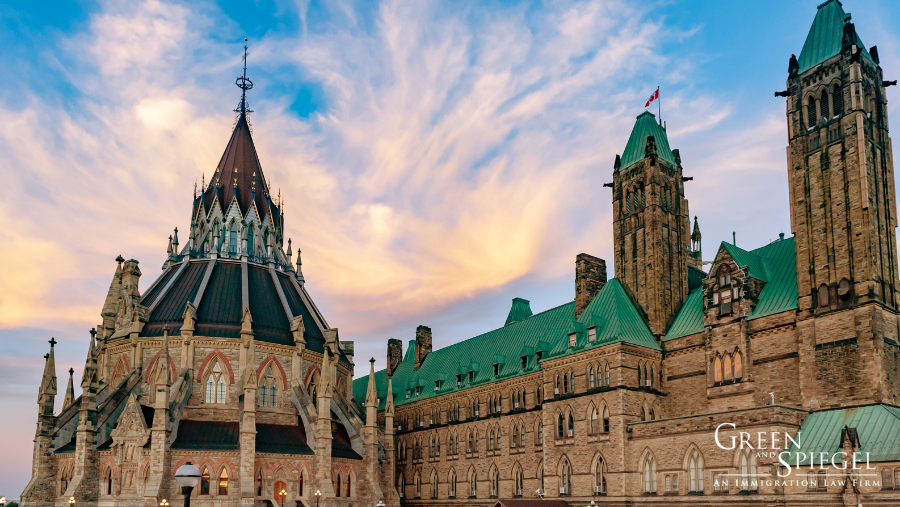
In mid-January, Immigration, Refugees and Citizenship Canada (IRCC) released an internal memo through an access to information request detailing the department’s strategy for managing the inventory of profiles and applications submitted to the Express Entry system. Deemed the ‘Federal High Skill’ (FHS) categories, this memorandum sheds light on decisions made by IRCC pertaining to the Federal Skilled Worker (FSW), Canadian Experience Class (CEC), and Federal Skilled Trades. It also provides information on what to expect in the coming months, as IRCC works to manage exceptionally high inventory levels from the FHS applications.
Since the Express Entry system launched in January 2015, candidates have enjoyed relative predictability – every two to three weeks, a round of invitations was issued under the FHS categories and the highest scoring candidates were invited to submit a permanent residence (PR) application. The global COVID-19 pandemic lowered predictability, with program-specific draws becoming commonplace, and significant changes in the points threshold under the CEC benefitting many hopeful applicants. Notably, these changes also saw FSW draws paused for a matter of months, and while briefly resumed in September 2020, another pause occurred in December 2020. Although many expected FSW draws to resume with the liberalization of Canada’s travel restrictions on September 7, 2021, these program draws remain on hold to date.
In another unanticipated move, IRCC has paused draws under the CEC. Therefore, with the exception of the enhanced Provincial Nominee Programs (PNP), the Express Entry system has not invited any new PR candidates since September 2021.
IRCC’s internal memo indicates this pause to be the result of a policy decision made to prioritize the processing of in-Canada applicants through programs like CEC and TR to PR Pathway amid COVID-19 related travel restrictions. As a result, an influx of inventory, specifically in the FHS programs have resulted in processing delays requiring the need for a pause on intake. In light of these inventory levels, as well as admissions through other programs, program directors have also recommended a reduction of up to 50% in FHS targets for 2022. While the precise details of this plan were not disclosed, it signals an ongoing pause in FHS invitations, a significant reduction in invitations throughout the 2022 year, and ongoing processing delays. This has notable impacts for those candidates planning their immigration journey to Canada.
Express Entry Candidates
Due to the pause on future invitations, during which even CEC candidates may not be invited for the first half of 2022, express entry candidates may wish to consider alternative routes to PR such as the PNPs.
Notably, certain PNPs issue what is known as ‘enhanced’ nominations, linked to the express entry system which allow PR applicants to benefit from the expedited processing of EE, rather than be subject to the non-EE processing of 15 – 18 months. IRCC has indicated that PNP-specific draws will continue. On January 19, 2022 IRCC held its 10th consecutive PNP draw, which was the largest PNP-specific draw ever with 1036 invitations to apply being issued.
Furthermore, the huge inventory of profiles sitting in the express entry pool has driven up the number of competitive candidates in the system such that IRCC has estimated the score required to receive an invitation to apply will likely rise above 500. Therefore, once draws do resume, candidates can expect scores to remain high, with only the most competitive candidates being invited. Currently, with nearly 30,000 candidates with scores of between 471- 600 the express entry pool has become a viable option for largely those candidates with high language scores, high education levels, and previous work experience in Canada.
If no alternative options exist, candidates would do well to monitor immigration updates and ensure their documents such as language tests, education credential assessments and passports remain valid – with the pause on FHS draws comes the potential of new and revived immigration programs such as the TR to PR Pathway, which are generally announced with short notice, quota based, and require valid documents upfront.
Express Entry Applicants
Prior to COVID-19, the estimated processing time for Express Entry applications was approximately six months. This standard applied regardless of program type or applicant location. Due to IRCC’s inventory growth, processing under the FSW program has increased to 20.4 months, over three times higher than the service standard, and is expected to increase to 36 months in the next year. CEC processing has also been impacted, now estimated at approximately 7.6 months.
In light of this increase, in-Canada applicants are reminded that they must maintain valid immigration status at all times until becoming a PR. As expired status documents will delay application processing, these candidates should ensure they are speaking with their employers and/or immigration representatives and initiating extensions with IRCC well in advance of their document expiry dates.
Those having applied under the FSW program should also take note of new processing timelines and expect to receive requests for updated documents from IRCC. Although certain visa offices have been extending the validity of immigration medicals beyond one year, candidates may be asked to undergo a new medical exam during processing. They should ensure applications are kept up to date, providing expired identity documents to IRCC proactively, yet keeping in mind the validity of other documents such as language test and ECA reports is locked in at the time of application submissions.
Next Steps
The COVID-19 global pandemic has accelerated IRCC’s learnings since the launch of the Express Entry system. With the view of labour market needs broadening from high skilled to encompass service industry, heath care, and food and beverage processing roles, hopeful candidates may find their permanent resident options changing over 2022. While 2021 brought many surprises including the record low CEC draw, and the launch of the TR to PR Pathway, 2022 promises to be yet another interesting year in Canada’s immigration history.
For information on permanent residence options in Canada, please reach out to a member of our team here.






